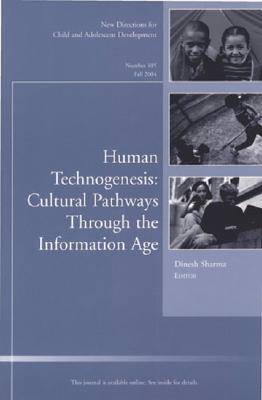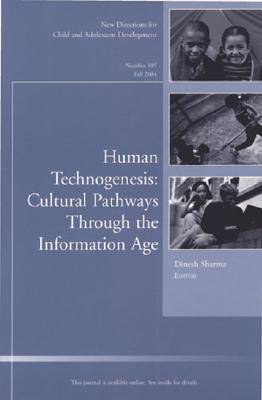
- Retrait gratuit dans votre magasin Club
- 7.000.000 titres dans notre catalogue
- Payer en toute sécurité
- Toujours un magasin près de chez vous
- Retrait gratuit dans votre magasin Club
- 7.000.0000 titres dans notre catalogue
- Payer en toute sécurité
- Toujours un magasin près de chez vous
Description
The technologically driven information economy is reshaping everyday human behavior and sociocultural environments. Yet our paradigms for understanding human development within a cultural framework are guided by traditional and dichotomous ideas about the social world (for example, individualism-collectivism, egocentric-sociocentric, modern-traditional, Western-Non-Western). As the impact of information technologies permeates all aspects of our lives, research in human development and psychology must face the digitally, connected social environments as its laboratory, filled with naturally occurring experiments, whether it is the speed at which we now communicate in the home or workplace, the far-reaching access children have to a wide array of information previously unavailable, or the vicarious anonymity with which we are able to participate in each other's lives through the new media tools. This volume begins the necessary discussion on how researchers will need to recognize the technology's impact on human development in their work and practice.
This is the 105th volume of the Jossey-Bass quarterly report series New Directions for Child and Adolescent Development.
Spécifications
Parties prenantes
- Auteur(s) :
- Editeur:
Contenu
- Nombre de pages :
- 96
- Langue:
- Anglais
- Collection :
- Tome:
- n° 105
Caractéristiques
- EAN:
- 9780787977795
- Date de parution :
- 28-09-04
- Format:
- Livre broché
- Format numérique:
- Trade paperback (VS)
- Dimensions :
- 158 mm x 229 mm
- Poids :
- 136 g

Les avis
Nous publions uniquement les avis qui respectent les conditions requises. Consultez nos conditions pour les avis.






